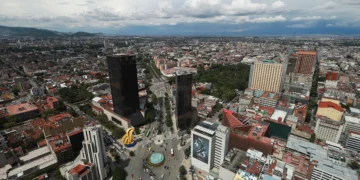- Throughout history, technology has replaced human actions but not humans; our definition of what it means to be human has evolved.
- Capitalism finds ways to adapt to new technologies by creating new fields of work for humans to provide value and earn money.
- Technology brings a rapid rate of change to industrial economies that makes skill sets of large labor forces obsolete.
Technology is driving rapid and transformative changes for human civilization that are redefining how humans interact with the world and with each other. It’s hard to imagine, even fifteen years ago, that humans would have spent vast amounts of their day staring at small cellular devices — looking at screens to play games, sending cat videos to friends, and liking photos of what their friends had for dinner.
This has evolved humans’ attention spans and social interactions. If you go back in time to 1905 and explain the concept of a global network that connects people and information across the world to anyone, they will stare at you blankly and think you were either insane, an alien, or a time traveler.
Throughout the agricultural and industrial revolutions, technology replaced human actions, but has never fully replaced humans. Farmers no longer plow fields manually and the spinning jenny evolved into steam engine mechanized manufacturing, yet individuals were and will always be needed to oversee operations.
Technologies like AI and data processing automation now influence almost every industry including finance, logistics, healthcare, education, entertainment, and real estate. This is creating new opportunities while also raising concerns in the media and the public discourse about how robots will be taking jobs away and replacing humans and the human experience.
The capitalistic ecosystem and industrial entrepreneurship have always found ways to adapt to new technologies by creating new jobs and fields of work for humans to provide value and earn a living. As technology becomes more sophisticated, our definition of what it means to be human changes.
Much of this comes from how different humans are from computers. There is a human element in everything that members of the species do in relation to creativity, art, social and emotional intelligence, processing nature, contextual understanding, and even computation. However, this does not discredit the fact that the rate of technology change is in hyper speed mode and computers may start doing what a human does…to the point it can be considered cloning.
I have an optimistic view that even when a quantum computer can perform many of the functions that we consider human today, the human brain and the human species will step up to perform something new. Consider how technology has changed a human’s role in financial jobs over the last 200 years. Even going back to revolutions as early as the “.com” boom, accounting, software, and central data repository stored on the internet did not replace file and storage clerks, they simply gave rise to new jobs for individuals to manage the technology.
There are certainly risks that the rapid rate of change technology brings to industrial economies can lead to the obsolescence of certain skill sets of large segments of the labor force, making them suffer from socioeconomic issues such as poverty and wealth disparity. These risks must be addressed at the public policy level as well as within society. Rates of change can outpace the development of regulations. Proof of this can be seen in how little regulation and consumer protection exists in areas like consumer data.
Soon, accountants may not be responsible for managing QuickBooks Online Cloud software or managing accounts receivable ERP systems, AI machines will do it. Instead, humans might be relegated to more creative and complex assignments such as trying to interrelate employee emotions and employee conversations with the same financial inputs and outputs that an AI machine is putting into a QuickBooks or ERP system.
Technology has a history of improving the lives of humans around it, rather than replacing people. Us homosapiens will always find ways to make ourselves valuable. Governments, businesses, and educational institutions need to collaborate to create policies, programs, and initiatives that promote adaptation to future changes.













